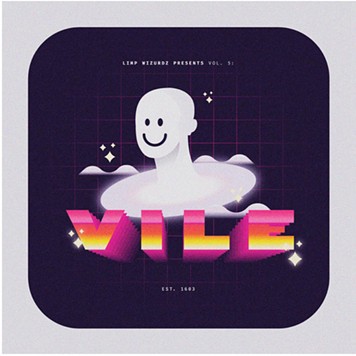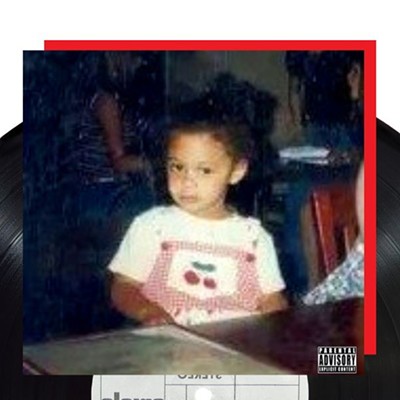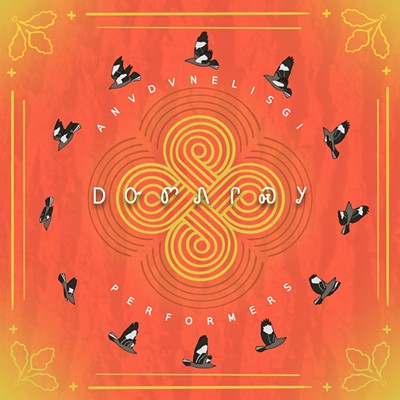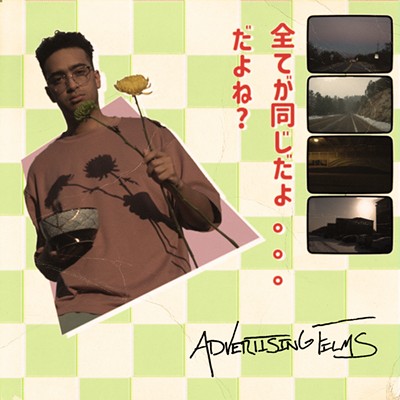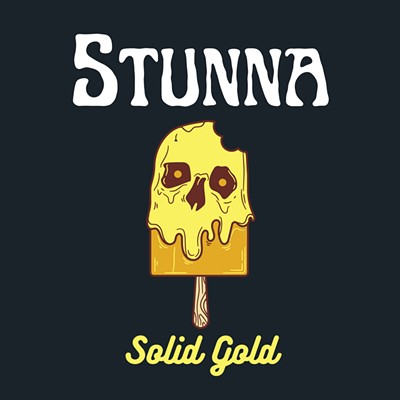One oft-cited crumb of advice to remedy powerlessness is to focus not on outward change but on inner attitude. When a person cannot affect progress in people or systems, the person can at least decide how such forces affect them. This fortune cookie wisdom may have some merit, but it is easier said than done. It also feels especially trite when the powerlessness comes from within. For Limp Wizurdz, a long-running Oklahoma City quartet of pop punk jokers, it may even be a grim punchline.
Vile, the band’s new 12-track full-length album, is the Wizurdz at their most sobering. While themes of existentialism, self-loathing, failure and intrapersonal entrapment have long tugged at the corners of the group’s more fun-loving songs, that baggage is the centerpiece here.
Set to distorted guitars and shout-sung vocals, the new material is surprisingly meditative for a punk-leaning record, ruminating at length in dead-end places where self-help feels helpless. Where 2019’s Circles took some time to consider the fruitlessness of spinning one’s proverbial wheels in life, Vile shuts the engine off and sits with the muck for the longest album runtime in Wizurdz history. Granted, tracks clocking in over five minutes may not be exceptional to some listeners, but in the context of this band’s back catalog, it is noteworthy. Instead of merely momentarily acknowledging these troubles as before or masking them in symbolism, Vile makes direct eye contact with them for an entire album.
In the record’s peripheral vision, though, there do remain bits of Limp Wizurdz’s signature sense of humor. A couple of textural segues like the chuckled “shut the fuck up” kicking off the title track and the cough that ends “Just Fine” drop morsels of levity. The brief entirety of “Midnight Strangler” is morbidly comical as a standalone song and even funnier as a tonal non sequitur late in the album. There is also the retro-digital album art, which depicts a blank smile as the LP’s self-deprecating title zooms ironically from a cyberspace void. It couches a decidedly Millennial/Gen-Z humor that mixes metamodern tenacity with nihilist absurdism, and for some kids that made a name on fast-paced, low-effort songs full of inside jokes ten years ago, this outgrowth of maturity is fascinating and profound.
Naturally, Vile is not for everyone, but the music does make great strides to sweeten the lyrical bitterness. The band knows and plays to its strengths, writing in a vocal register that gets the best performances out of its lead and harmonies. A chugging rhythm section ensures the album doesn’t sag even when the Wizurdz play some of the longest, moodiest instrumental stretches of their careers. The lyrically minimal “Better Name,” for example, spends over a third of its time in unspoken thought, working through a series of pensive guitar riffs before closing out.
Other songwriting highlights include “Tope Suicida,” “Garden of Kyle,” and “Plastic Moan.” “Tope Suicida,” a reference to a wrestling move that translates to “suicide stop,” has a nice line about “being bound to never being tied,” one of multiple paradoxes here. “Garden of Kyle” writes unfinished verses, leaving space for listeners to fill in the blanks. “Plastic Moan” features homie of the band S. Reidy ramping up the song through a couple of stellar compounding verses.
For all of the album’s questioning and frustrating lack of answers expressed through recurring lines about punching holes through drywall and nothing making sense, there is a part in “Too Good” that is worth further scrutiny. This track, which boasts maybe the best chorus on the LP (“I’ll never be too good for you”), proclaims that, “It’s either cry or laugh.” This lyric senses the overwhelming weight of everything and the powerlessness to address it. It says that one can only flip a coin for a reaction. It is the grim punchline to that fortune cookie wisdom from before.
However, there is a third option that the band doesn’t say out loud. It is not in the words but in the actions of the very making of Vile. While the verbal end of “Too Good” trails out with a fixated refrain about the unhealthy cycle of depression and anxiety, the song continues for another minute and a half as the band plays on. Whether intentional or not, it represents the third option, which is to make art out of the pain. Vile is fueled by negativity, sure, but it is a net positive. It is a good album that expresses an arrested state of being to a T, and in doing so, it puts something more tangible into the world with which to grapple. Art has power, and in powerless times, it may be the lifeline out of the dark.

